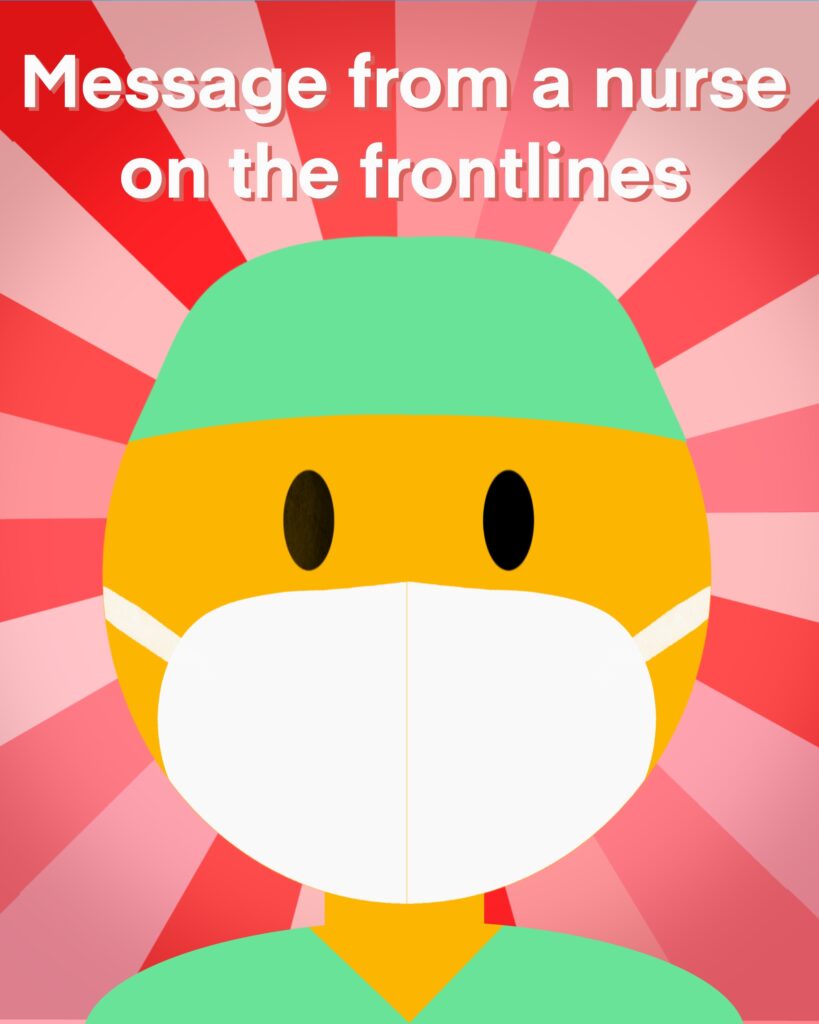
We’ve all celebrated the healthcare workers on the frontlines. They’re featured on the nightly news, cheered for by tens of thousands every night at 7pm in New York City, and lovingly drawn, painted, and photographed by artists around the world.
But do we really know what it’s like to be one?
When an ER nurse on the night shift in a busy hospital in Queens, New York, that was practically overwhelmed with Covid-19 patients, told us she had a message for everyone, we wanted to hear what she had to say.
This is a nurse who prefers anonymity. “I don’t go into a lot of details about my job with my friends on the phone,” she told us. “I don’t post on social media.” She hasn’t even had a chance to bask in the glory of a single 7PM healthcare worker gratitude shout-out. “I work the night shift,” she said. “I’m on duty when all that goes on.”
In the emergency room, she’s seen it all. The lack of testing. The lack of protective equipment. The lack of a coordinated government response that left healthcare workers exposed. The constant stream of feverish, frightened people coming in. People dying in ambulances before they reached the hospital. People dying in hallways. People dying without loved ones. “I’ve had to tell a son or daughter, ‘You need to leave your 80-year old mother with me. I know she doesn’t speak English. I know she can’t breathe. But you need to leave.’ And I’ve had to do that, over and over again,” she told us.
Despite the harrowing things she’s seen, the risk she faces every shift, and the emotional toll of her work, this nurse is resolute. “It’s my job,” she says. “We all keep showing up. That’s who we nurses are.”
And what’s this nurse’s message to us?
Number 1. Be a hero.
“If you’re social distancing right now, you’re a hero. Seriously. You’re doing your part to prevent yourself, or maybe someone else, from ending up in an emergency room like ours. So continue practicing that.”
Number 2. Stay informed.
“There is good information out there being disseminated by medically credible sources. Figure out who they are, and listen to them, so you can make decisions wisely about your own activities and health.”
Number 3. Be kind.
“Be kind to everyone. You don’t know their story. I am seeing a lot of beautiful things, displays of generosity and gratitude during this time, nurses showing up from around the country, people taking their time to make masks for us. I am also seeing a lot of terrible things. Racism. Intolerance. We don’t know what the second or third or fourth wave of this pandemic will look like. But we do know that we are all human, interrelated. The crisis is a human problem, and to solve it, we have to stick together. I do my part, I’m asking everyone else, you do yours.”
Follow us on Instagram @Find.Your.Road_for more Stories & Strategies on People & Work.
Find out more about what we do at SweeneyGosfield.com.
Our story “Message from a Nurse on the Frontlines” first appeared in Psychology Today. You can check out more of our stories in Psychology Today here.
